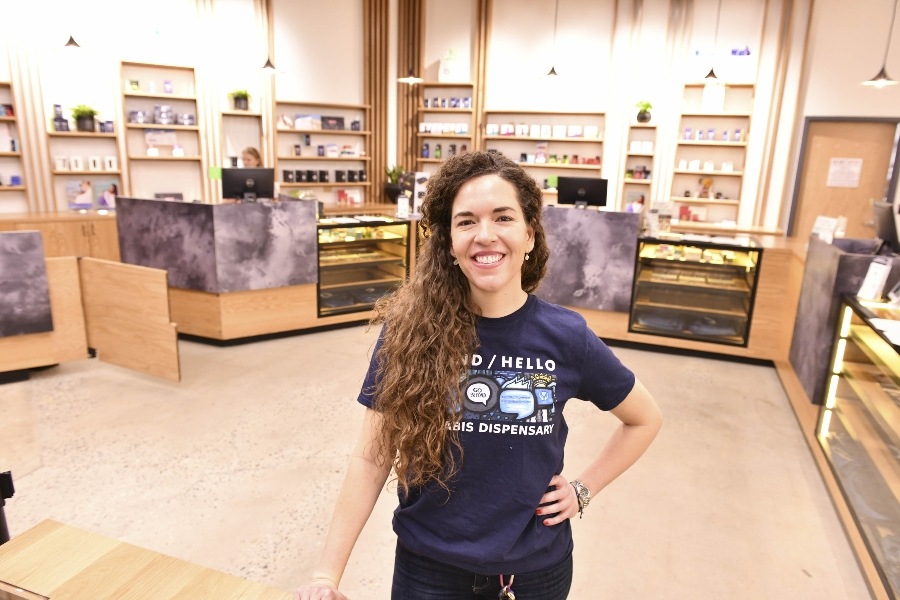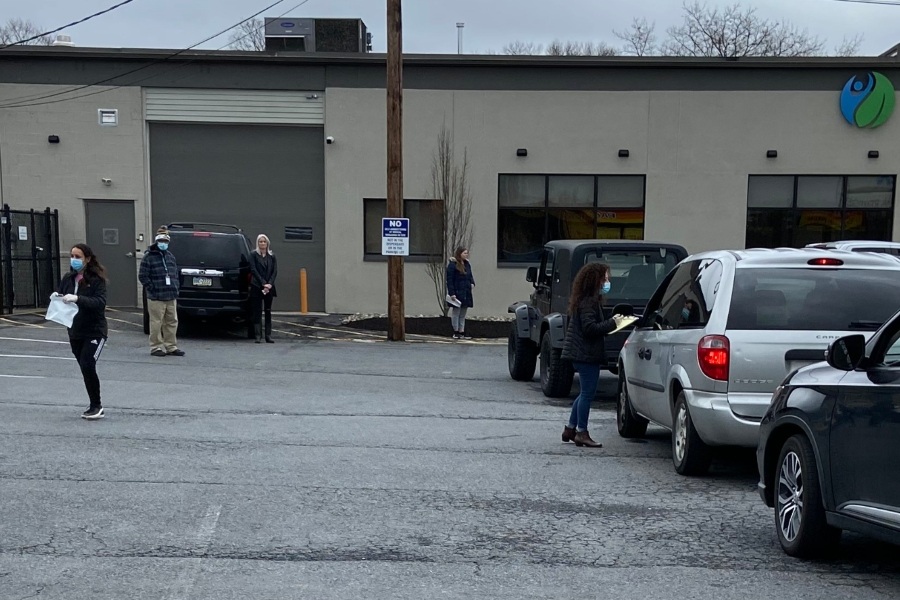Coronavirus Is Legitimizing Pennsylvania’s Marijuana Industry
Special allowances for cannabis businesses, like delivery and curbside pick-up, could boost the sector long after the COVID-19 pandemic is over.

Keystone Canna Remedies is one of several Pennsylvania dispensaries that have begun offering curbside pick-up and home delivery of medical marijuana products to prevent the spread of coronavirus. / Courtesy
Medical marijuana is essential. According to Pennsylvania Governor Tom Wolf’s executive order and Philadelphia Mayor Jim Kenney’s list of restrictions on business activity, cannabis is just as essential as food and toilet paper amid the global coronavirus pandemic.
In mid-March, when both leaders mandated the closure of all non-essential and non-life-sustaining businesses to help reduce the spread of COVID-19, cannabis dispensaries were allowed to continue serving the more than 180,000 registered cardholders in the state’s medical marijuana program.
As the number of cases of COVID-19 continues to increase across the state and stricter guidelines have limited even food businesses to delivery or pick-up only, medical marijuana dispensaries have begun bringing everything from dry leaf and tinctures to topicals and vapes to patient’s vehicles and homes.

President of Beyond/Hello cannabis dispensary, Blythe Heustis. / Courtesy
Local dispensary owners, like Blythe Heustis, say they’re already seeing an uptick in sales thanks to the essential business designation. Huestis, the president of Philly-based cannabis company Beyond/Hello and vice president of retail operations for the global cannabis company Jushi Holdings, says she was thrilled that the state allowed dispensaries to continue serving their customers.
“Being identified as a life-sustaining essential business is a pretty huge statement. I was incredibly appreciative that we were recognized by Governor Wolf and Dr. Rachel Levine at the Department of Health, who obviously played a big part in making sure that happened,” Heustis said. “We are a legitimate business and we are providing medicine to patients during a true time of need for them. Our patients need us now, more than ever.”
According to Heustis, Beyond/Hello customers are ordering cannabis medicines in unprecedented volumes for everything from management of cancer symptoms and pain to anxiety and post-traumatic stress disorder.
To support the surge in customer interest while keeping employees and patients safe, Beyond/Hello has implemented an array of operational changes, including taking employees’ temperatures upon arrival at dispensary sites, requiring hand-washing at the start of shifts, using hand sanitizer regularly throughout the day and sanitizing workstations in between sales. Beyond/Hello has also encouraged patients and caregivers to call in their orders in advance to limit wait times for curbside pickups.

Keystone Canna Remedies is one of several Pennsylvania dispensaries that have begun offering curbside pick-up and home delivery of medical marijuana products to prevent the spread of coronavirus. / Courtesy
Another local cannabis business, Keystone Canna Remedies (KCR), was the first dispensary to open in Pennsylvania in 2018. Two weeks ago, the company began offering curbside, contact-free medication pickup at its locations in Bethlehem and Allentown, Pennsylvania. KCR’s chief operating officer, Joan Guadagnino, says the company saw an increase in business and sales in March but whether that increase will continue through April remains to be seen.
“It may, in part, have been attributable to panic buying if our patients were concerned that the dispensaries would be closed or otherwise negatively affected by the COVID-19 crisis,” Guadagnino said.
KCR too has focused on implementing changes to enforce social distancing and reduce patient exposure to COVID-19. In addition to offering curbside pickup and extending a 10 percent discount to patients who use it, KCR has begun recruiting caregivers from its patient base to deliver medicine to other patients who are unable to visit the dispensary.

Philly-based cannabis company Beyond/Hello implemented a number of operational changes to protect employees and patients during the coronavirus COVID-19 pandemic. / Courtesy
While some businesses have struggled to keep up with ever-changing guidelines, for most medical marijuana business owners, sudden regulatory changes are nothing new.
“One of the things that I’ve experienced in my ten years of being involved in dispensary operations is that we’ve learned to be pretty nimble,” said Heustis. “We’re used to sudden changes. The cannabis industry has had to deal with fluctuating regulations all the time. So, I think we definitely had a leg up in that regard.”
In late March, the state Department of Health announced temporary changes to Pennsylvania’s medical marijuana program, making it easier for patients to sign up for the program by allowing physicians to certify patients via virtual consultations instead of the standard in-person evaluations, and waiving the requirement for background checks for renewal applicants.
Since then, the department says it’s seen a steady stream of new registrants, month over month. As of February 10, the program had more than 259,000 registered patients. That number grew to nearly 272,000 registered patients by March 6th and 284,000 patients as of April 10th.
But the true impact of COVID-19 on the local cannabis industry may not be realized until long after the pandemic is over.
Cherron Perry-Thomas, co-founder of the Diasporic Alliance for Cannabis Opportunities(DACO), says the short-term changes implemented during the pandemic could set a new precedent for how the local cannabis industry will be regulated in the future.
“This is going to give advocates a lot more fuel in terms of legitimizing the industry by saying to governments, ‘If you can relax these rules or change them for the pandemic, you should be able to continue that,’” she said. “I think there’s probably going to be a lot more attention given to ordering online and continuing some of the services we’ve seen with COVID-19.”
Heustis also hopes the recent changes for COVID-19 will help alleviate some of the stigma surrounding medical marijuana use.
“My hope is that some of the naysayers and the people who aren’t so supportive of it might realize how important we are to people. I will never say that cannabis is for everybody, but this is a medical program and we really are helping people,” she said. “Beyond that, I hope that this will maybe give us some more flexibility for how we serve our patients in the future.”
“At the end of the day, it’s important for patients to continue to have access to cannabis, whether it’s during a pandemic or not,” Perry-Tomas added.
Perry-Thomas’ organization aims to introduce marginalized communities to opportunities in the medical marijuana industry, where fewer than 20 percent of all business owners and employees are non-white. She says she remains optimistic that governments will begin to offer more opportunities for marginalized communities to play a larger role in the cannabis industry both now and beyond the pandemic.
“The cannabis industry as we know it today has created many new positions and entrepreneurs but, few have progressed from black and brown communities,” she said. “It takes a combined effort between industry, government and community stakeholders to come up with a plan of action that will deliver oversight to increase diversity and inclusion.”


